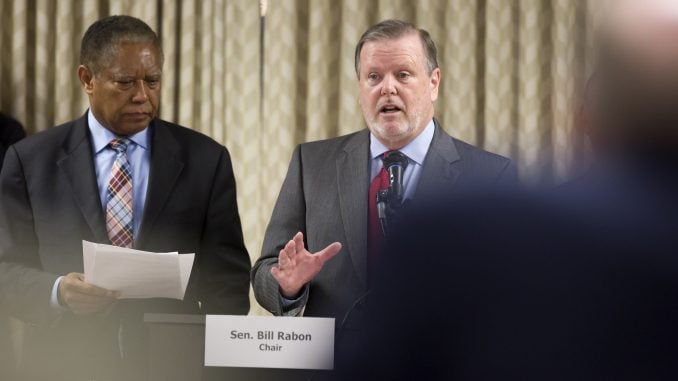
UPDATE 4 – Gov. Cooper has signed H.B. 142 into law and issued the following statement:”Today we repealed HB2. We begin to end discrimination. We begin to bring
back jobs and sporting events. And we begin to repair our reputation.
It is an important step, but it cannot be the only step.”————UPDATE 3 – H.B. 142, passes the N.C. House 70-48.————UPDATE 2 – H.B. 142, a measure to repeal H.B. 2., passes the N.C. Senate 32 to 16.————RALEIGH Supporters of the bill to repeal H.B. 2, up for a vote this morning, are coming forward urging lawmakers and the governor to support it, while opponents say they feel like they’ve been sold out. However, leaders in the LGBTQ community, like Equality NC director Chris Sgro, who have been working closely with Governor Roy Cooper to get H.B. 2 off the books and gender-neutral bathrooms ordinances in cities across the state, say they are disappointed in the compromise that Cooper worked out with the Republican-led legislature.”We feel disheartened and dismayed. This in not leadership, Governor,” said Sgro in a press conference in front of the legislative building Thursday morning.”It’s unfortunate that the governor spent this morning trying to convince legislative Democrats to abide by Phil Berger’s agenda by not sticking up for the rights on transgender people,” he later added.The proposal is expected to pass the N.C. House and Senate Thursday, making its way to Cooper’s desk by the end of the week. The N.C. Chamber of Commerce, a non-profit business advocacy group, is urging support for it. “The N.C. Chamber thanks the House and Senate leadership and the Governor for coming together on a bipartisan basis to find a solution. We encourage members of the House and Senate to support House Bill 142,” said Lew Ebert, president and CEO of the N.C. Chamber.Supporters consider the bill a “reset” after a year-long national campaign against N.C.’s bathroom law by groups who consider transgender access to multi-stalled public restrooms a civil rights issue. Legislators who worked the deal with Cooper say its intended to put the decision over gender and bathroom access to the judicial system, rather than legislatures or corporate pressure.



